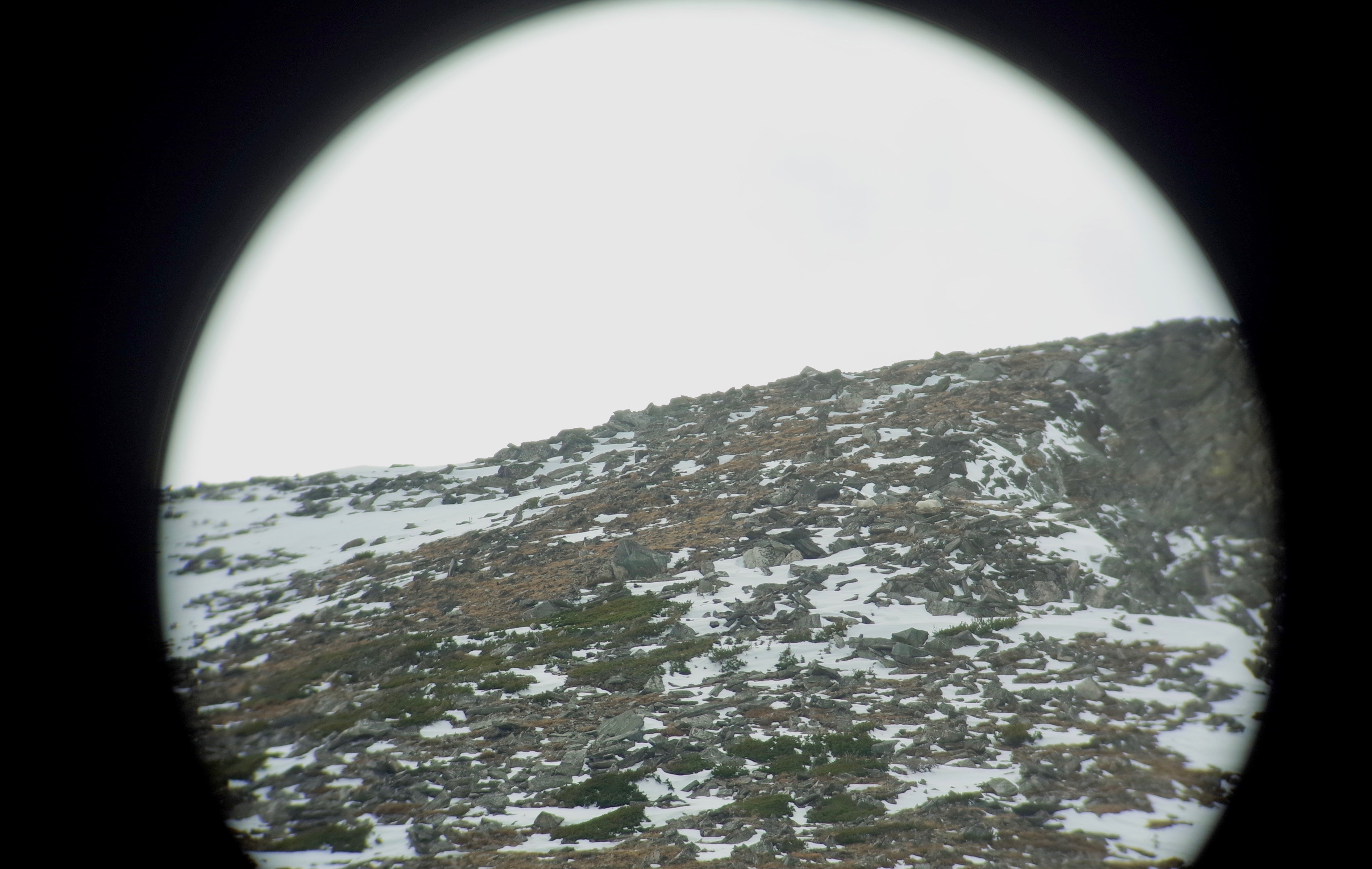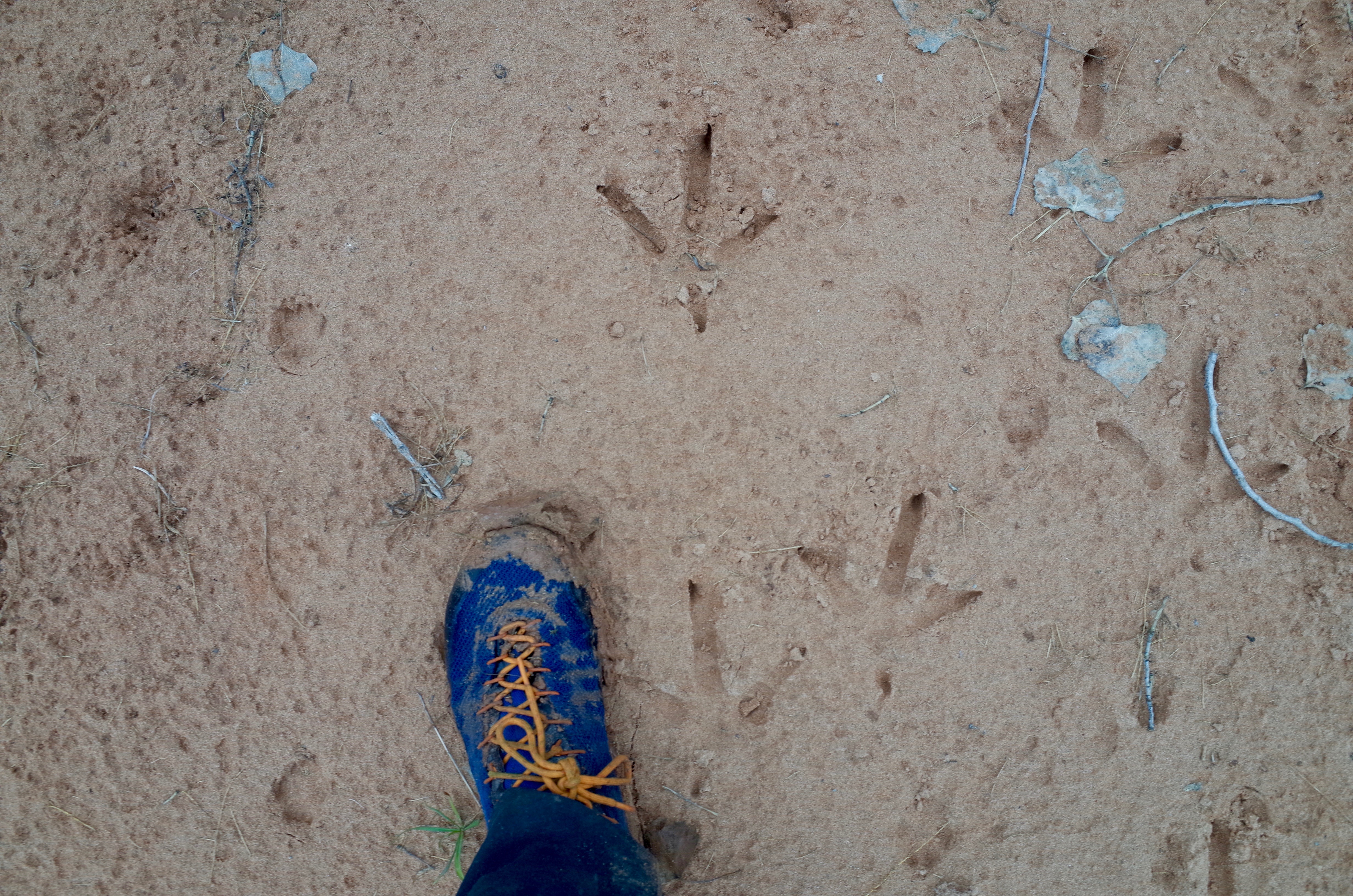5 steps for the rookie hunter
Posted by on 27th Jan 2017
Last week at SHOT I had a number of conversations about how an adult who had never hunted might go about learning. A shooting, hunting, and outdoor trade show might seem like an odd place for such a conversation, where you'd assume almost everyone hunts. This might highlight the extent to which shooting (bow or firearm) is only one of many skills a hunter needs, as well as the large number of people interested in hunting who were not raised doing it. The appeal of harvesting one's own meat and gaining a more nuanced understanding of the wild world is today more obvious than any time in the last 50 years, thanks to both a growing population and online media. Shows like (friend of Seek Outside) Meat Eater articulate that finding and killing your own food can be an adventure to rival anything, something well understood in the days of Aldo Leupold and Jack O'Connor. The growing adult interest in hunting could be seen as a revival of hunting at it used to be understood and practiced.

Not everyone will want to, can, or even should go on an alpha-level backcountry hunt, either this year or ever. Finding and killing mountain goats (there are two pictured above, right of center) usually demands a refined and wide-ranging skill set that can and should take years to acquire and hone. This is one of the deepest rewards of hunting, finding success after many days of effort, often spread over years, on terms set by something entirely beyond yourself. Fortunately hunting is available almost every place, and the process of pursuing winter squirrels through the rhodos and hardwoods of northern Appalachia can be quite as demanding as chasing August mule deer at 12,000 feet.
With all that said, here are the five steps every aspiring hunter should follow.
1: Take hunter education
In most states hunter ed is a legal prerequisite to buying a hunting license, as well as a decent introduction to hunting law and the mechanics and safe operation of firearms. Aspiring bowhunters often need a bow-specific version. Significantly, the class can also be an easy way to meet and cultivate hunting mentors. Most instructors have been involved in hunting and firearms safety for a long time, have a vested interest in recruiting new hunters, and can be a great resource.
Bear in mind that most states run classes well ahead of hunting season; if you want to start hunting this fall, taking hunter education in the spring or summer is a good plan. Hunter-ed.com will get you pointed towards classes in your state.
2: Read the regulations
Hunting in the US and Canada is thoroughly controlled by law, to provide both the hunting and non-hunting public, current and future, with animals to go out and appreciate. Becoming acquainted with the types of opportunity available to you in your state generally requires a fair bit of research. Season dates, lengths, and legal weapon types can all vary substantially from region to region within a state.
The corollary to this is that those who are not put off by a few hours digging through fine print can often find opportunities hidden in plain sight. This is especially relevant when it comes to big game opportunities in marquee western states. Regulations, as well as your interests as a hunter, change with time. Studying hunting regulations is for the hunter a never-ending process.
3: Learn to shoot
Hunting isn't just about killing, but without killing there can be no hunting. This is the point where a serious investment of both time and money is largely unavoidable. However, putting off buying a rifle and scope package, or compound bow setup, in favor of a shotgun or rimfire rifle can make learning to shoot more accessible and fun. A single shot 20 gauge shotgun is inexpensive, simple and safe to operate, has fairly innocuous recoil, and is a great tool for a variety of small game hunting.
Small game hunting is generally less expensive and logistically intimidating than hunting big game, and practicing shooting in the field and on actual animals is both more effective than shooting at paper and more fun. 6 to 12 months of small game shooting will let you make a more informed purchase, when it comes to acquiring a big game tool, and more comfortable with a higher powered tool. Small game is also an effective introduction to cleaning and cooking what you kill. Taking apart a dozen rabbits is perfect practice for field dressing a deer.
4: Learn about the woods
Becoming familiar with the woods, and especially with living out in the woods, is where hunting becomes truly multifaceted. Where does a certain species live at a given time of year? How do I stay out in the snow all day without getting too cold? How do I find my way back to camp in the dark? How to I move through an area without spooking the animal I'm looking for? You'll need to answer all of these questions, and the only way to do that it to get out, make some mistakes, go home, do some research, and get back out and practice again.
There are many good books which can give you a leg up. The two volumes of Rinella's Complete Guide to Hunting, Butchering, and Cooking Wild Game provide a near-definitive overview, while more subject specific titles like Robby Denning's Hunting Big Mule Deer provide information of discrete species. This being the internet age, a youtube video is available for any subject you might imagine. Randy Newberg's work is worth mentioning, as his channel features information tailored to most of the subjects new hunters might find of interest.
Even the most experienced hunter will as the year go by find new things to learn in the field, be it about a new area and species, or about the turkeys they've hunted in a same river bottom for 20 years. The depth and complexity of hunting is what makes it such a compelling lifelong pursuit.
5: Go hunting
Aspiration without action and eventual realization poisons the soul and creates what Thoreau called "lives of quiet desperation." Learning in the field is the best learning, and without context written theories and opinions end up fighting each other in a vacuum. Coherence requires action.

Going through these five steps, in order, should put you well on the way to becoming a hunter. For someone starting mostly from scratch, an 18 month plan is realistic. Take hunting education in late spring, acquire a shotgun or a .22 rifle, and shoot and hunt small game plenty all through the fall, winter and spring (as your locale permits). Early in the second spring, acquire a big game rifle or bow, read plenty, practice even more, get out on scouting trips looking for game, and come late summer or fall hit the woods big game hunting with a substantial body of experience and confidence.
…